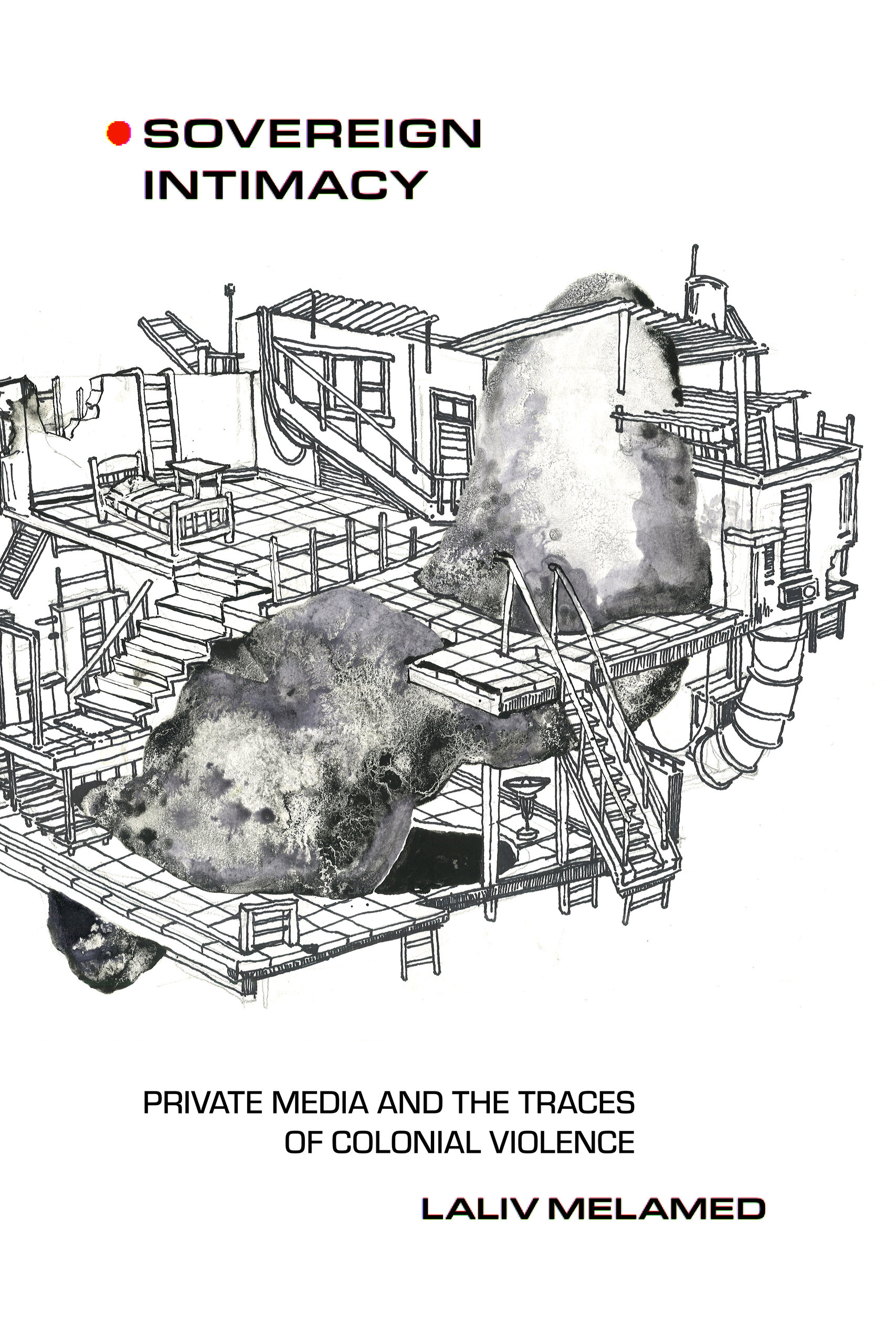Sovereign Intimacy: Private Media and the Traces of Colonial Violence

Sovereign Intimacy: Private Media and the Traces of Colonial Violence
Book event
RESCHEDULEDNEW DATE: FRIDAY, OCTOBER 6, 4-6PM
721 Broadway, Room 612
Participants: Laliv Melamed (University of Groningen, author), Toby Lee (New York University), Debashree Mukherjee (Columbia University) and Pooja Rangan (Amherst College)
About the book:
In the early 1990s, Israeli television began dedicating Memorial Day air time to videos produced by the grieving families of soldiers killed in the line of duty. When these videos first appeared during a period of growing Israeli discontent with the occupation of southern Lebanon, they were widely perceived as a challenge to the state, reclaiming the dead from Israel’s militaristic memory culture by resituating them in intimate domestic contexts via mediated commemorations.
By tracing an emerging private media system of freelance filmmaking, privatized television, state institutes of care, and grassroots campaigns, Laliv Melamed reveals how these videos nevertheless evade a fundamental critique of Israeli militarism, which is instead invited into the familiar space of the home. These intimate connections of memory and media exploit bonds of kinship and reshape larger relationships between the state and its citizens, enabling a collective disavowal of colonial violence. In Sovereign Intimacy, Laliv Melamed offers a poignant and critical view of the weaponization of home media and mourning in service of the neoliberal settler state.
Free and open to the public. RSVP required.
Participants:
Laliv Melamed is an assistant professor of film and media studies at the University of Groningen. She writes on governance, sentimental politics and the public sphere in nonfiction media and documentary. Melamed is the author of Sovereign Intimacy: Private Media and the Traces of Colonial Violence (University of California Press, 2023). In 2020, with the break of the pandemic, she launched a collaborative project titled Society for Sick Societies published by Social Text online, and co-edited Pandemic Media: Preliminary Notes Towards an Inventory (Meson Press, 2021). Her current research, focusing on military optics and aspects of state secrecy, is titled Optics of Opacity: The Cultural Imaginaries of Operative Images. In addition to her academic career, Melamed is a film programmer. She works for Docaviv Film Festival, and has curated programs for The Left Bank film club and Oberhausen Film Festival.
Toby Lee is an artist, anthropologist, and Associate Professor of Cinema Studies at NYU. She is the author of The Public Life of Cinema: Conflict and Collectivity in Austerity Greece (University of California 2020), and her writing appears in Film Quarterly, Visual Anthropology Review, Millennium Film Journal, and World Records. Her research interests include visual and media anthropology, cultural citizenship and public life, expanded documentary, operative media, and the documentary unreal.
Debashree Mukherjee is Associate Professor of film and media in the Department of Middle Eastern, South Asian, and African Studies (MESAAS) at Columbia University. She is author of Bombay Hustle: Making Movies in a Colonial City (2020), which approaches film history as an ecology of material practices and practitioners. Her second book project, Media at the Dawn of Planetary Extraction, develops a media history of South Asian indentured labor migration and plantation capitalism. Debashree edits the peer-reviewed journal BioScope: South Asian Screen Studies and has published in journals such as Film History, Feminist Media Histories, and Representations.
Pooja Rangan is Associate Professor of English and Chair of Film and Media Studies at Amherst College. Rangan is the author of Immediations: The Humanitarian Impulse in Documentary (Duke UP 2017), co-editor of Thinking with an Accent: Toward a New Object, Method, and Practice (UC Press 2023), as well as numerous journal articles and essays on topics such as disability and access aesthetics, accent as crip epistemology, forensic listening, and true crime and abolition (available on poojarangan.com). Her forthcoming book The Documentary Audit explores the equation of listening, in documentary discourse, with accountability, asking how accented, crip, and abolitionist modes of listening challenge established documentary values.